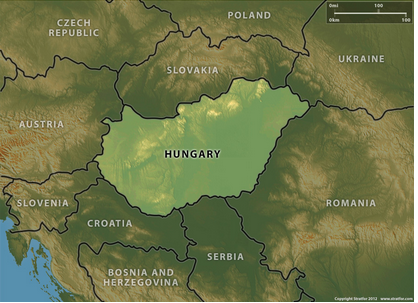Hungary Grasps for Leverage in Russia Energy Negotiations
Summary
The head of the Hungarian parliament, Antal Rogan, said Oct. 15 that a proposed natural gas bill that would allow the state to pre-emptively buy Hungarian oil and natural gas consortium MOL's strategic natural gas reserves is intended to prevent foreign influence on Hungary's supplies. The bill, presented to parliament Oct. 12, does not mandate the nationalization of MOL's natural gas reserves but rather gives the state the option of nationalization should Hungarian ownership of those highly strategic reserves be threatened.
The proposed legislation is the latest move in Hungary's quest to reduce foreign influence in its energy sector and, more important, would cement Budapest's control over Hungary's natural gas storage facilities. These are of particular strategic importance to Moscow because they are critical to the operation of the South Stream pipeline and the projection of Russian natural gas in Southern and Central Europe via the nearby Baumgarten trading hub in Austria. Hungary is solidifying its grip over its storage capacity to gain leverage in future energy negotiations with Russia.
Analysis
Headed by a strong central government, Hungary has sought to regain and consolidate control over its energy sector for the past five years. In 2007, Austrian energy company OMV made an unsolicited bid for MOL -- an offer that Budapest promptly refused. OMV then sold its entire stake in MOL -- which, at 21 percent, was already sizable -- to Russia's Surgutneftegas. Fearing the strengthening of Moscow's influence in Hungary's energy sector -- Russia already provides more than 70 percent of Hungary's natural gas imports -- the Hungarian state bought back the shares in MOL from Surgutneftegas in 2011.
Drawing from that experience, the legislation currently under discussion in the Hungarian parliament would allow the state to pre-emptively buy parts of MOL's natural gas reserves should it rule that foreign interest is a strategic threat to the country. In the previous example, the law would have allowed Budapest to prevent OMV's sale of MOL shares to a Russian company without having to buy them back.

There is another reason the legislation under consideration specifically targets MOL's natural gas storage assets. These assets have attracted considerable attention from Russia in the past, with unconfirmed reports of offers being made by various Russian companies for a stake in their ownership. The legislation also comes as Hungary's state-owned natural gas and electricity company MVM is preparing to buy out German firm E.On's local natural gas subsidiaries, which currently operate the majority of the country's reserves. These facts suggest Budapest is shoring up its control over the country's entire storage capacity.
The reason for this is that Hungary's natural gas storage infrastructure is a key asset in Russia's evolving energy strategy in Central Europe. With a capacity of more than 6 billion cubic meters, the Hungarian storage infrastructure is among the largest of its kind in Central Europe. Additionally, the proximity of the Hungarian storage sites to the Baumgarten natural gas hub makes them critical to Moscow's plans to diversify its supply routes in the region.
Baumgarten is important because it is the last common stop -- and the redistribution center -- for the two competing Caspian natural gas pipeline projects: Nabucco West and South Stream. South Stream, the Russian-backed project, is slated to begin construction by the end of 2012 and aims to reduce Moscow's dependence on Ukraine as a transit state for its natural gas exports to Central and Southern Europe.
Much like Ukrainian natural gas storage facilities are vital for the current operation of the Druzhba pipeline through Europe, Hungary's storage capability is slated to be key for the continuous and regular operation of the South Stream pipeline. Storage facilities are important to maintain pressure in the pipelines during the winter months, when adverse extracting conditions can reduce production and when there is higher demand on the consumer end. All of these factors make Hungary's storage facilities a prime target of Russian acquisition efforts.
In shielding Hungary's natural gas storage network against potential Russian acquisitions, Budapest is copying Kiev's negotiating tactics against Moscow, which have hinged on Ukraine's control of its own natural gas storage and transit facilities. Hungary's proposed legislation will strengthen the country's negotiating position against Russia once South Stream becomes operational and its storage capacity becomes a critical component of the project's operations. A stronger negotiating position will help Budapest in its future dealings with Moscow on natural gas prices and other energy issues.
Marc Lanthemann
Europe Analyst
STRATFOR
www.stratfor.com
Natural Gas Europe is pleased to provide this article in cooperation with Stratfor. For more visit http://www.stratfor.com/


